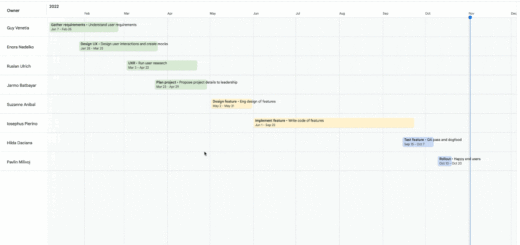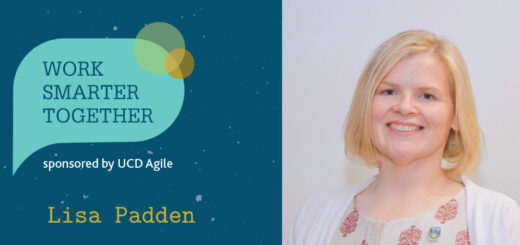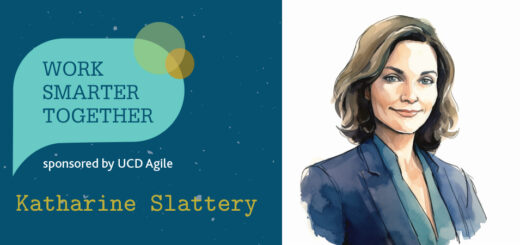Dr. Eadaoin Lysaght – A Day in the Life
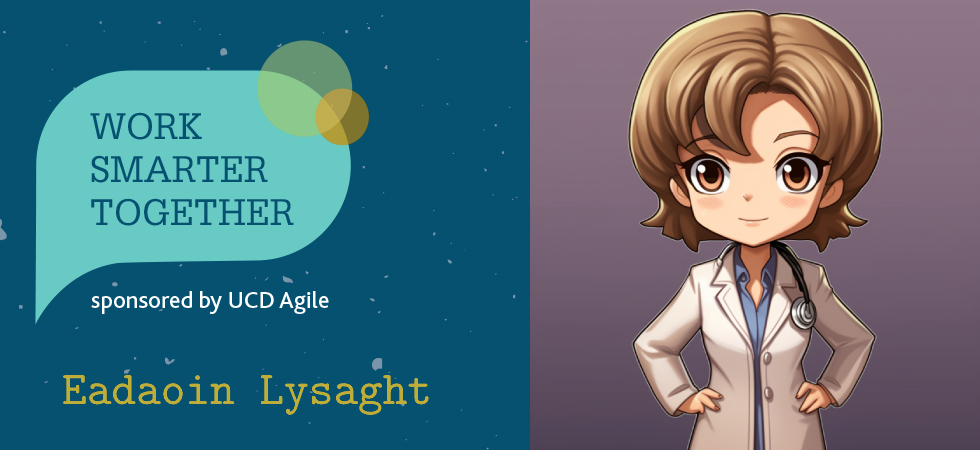 We offered our participants the opportunity to be interviewed in person and recorded as one of the options for this feature. The following is a write up on one of these interviews. It has been edited for clarity and length.
We offered our participants the opportunity to be interviewed in person and recorded as one of the options for this feature. The following is a write up on one of these interviews. It has been edited for clarity and length.
One sunny afternoon in May, I quick-step across campus to pick up the Director of the Student Health Service (SHS) – Eadaoin Lysaght for our interview date. I’m running a little late due to some printer issues which also means that I have none of the prepared questions printed but it’s not really an issue, I plan to ask some of my past teammates to help me out by printing them. As I arrive out of the sun into the refreshingly chill Student Health Centre, I immediately disrupt the cultivated atmosphere of professional calm by greeting former colleagues with printing demands and catch up questions whilst simultaneously being introduced to new team members who seem alarmingly familiar with who I am.
Suddenly I hear the familiar tones of Eadaoin who joins the chatter while multitasking admin and showing off the UCD Values In Action award the unit received for their work during Covid. I am ushered into her office with a promise of resolving my printing issues, leaving for a seat in the sun and an update on life in the SHS. As she prints the questions, she wraps up an email seeking guidance from a medical body, testing the tone of it out loud as she types. She cracks jokes while she asks me about my ‘new’ job, my family and everything else. Eadaoin has a way of speaking that is all at once reassuring, professional and completely hilarious. She comes across as so warm and approachable, it’s easy to see why students love her. Her wall is decorated with cards testifying to the impact she has had in their lives.
Suddenly we’re walking. We nearly make it outside before we have to turn back for sunglasses. Retrieving the glasses is a masterclass in covert extraction. The goal is to be low key and constantly moving. If you stop, it’s over, you will be asked a question and as not only a doctor but the Director of the Service, there are a lot of people with a lot of questions from the seemingly innocuous medical query to the logistical planning requirements for the expansion of the Service. She’s in and out without disruption and we are back on track to a seat in the sun outside the Student Sports Centre. We begin.
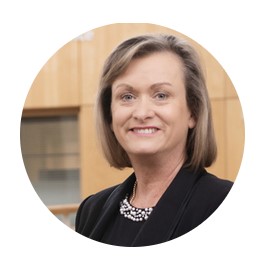
Who are you?
Dr Eadaoin Lysaght. I am a medical doctor and Director of the Student Health Service.
How did you get here? What was the journey to UCD?
I qualified from UCD in 1989 on the Dublin Regional Vocational Training Scheme for General Practice. It was a 3 year training scheme which prepared you to start work as a general practitioner. After that, I worked in a number of interesting busy places. I started working in UCD, part time in 2004, which was all that was on offer but it suited me. Post recession, I took a second job in a GP practice in Kildare. Doing the two jobs, I learned a lot and got a really good experience of what was going on in GP practice in Ireland at the time. It was a real coal face experience. It was a busy GP teaching practice. (*A teaching practice takes in newly qualified doctors who need supervision).
Interestingly although the patients in the Kildare practice could be more medically complex, they almost always had the support of friends and family from the community, there’s usually someone who will pick up a prescription or drive you to an appointment if you’re sick whereas students, especially international students lack that traditional support of family friends and neighbours support and can be quite isolated.
The other thing there was that you never, never knew when your working day was going to end. In UCD it’s a little more predictable, there’s more support, more of a team to rely on. It’s a vibrant, pleasant environment and I genuinely love working with young people.
In 2016, there was an opportunity to start working in UCD full time because the Service was expanding and I took the opportunity to work in one full time role. The previous Director, Sandra Tighe retired in 2020. At the height of the pandemic, I stepped in, in an acting capacity and applied for the role of Director, which I have held since 2020.
What is your role within UCD, and what are your main responsibilities?
Director of the Student Health Service. The SHS is a primary care provider – we provide general practitioner medical services & nurse led services to UCD students. As the head of the service, I am responsible for overall clinical governance of the service. My role involves leading and managing a diverse team of doctors, nurses, psychiatrist, addiction counsellor and administrative staff. I’m responsible for building capacity to best respond to the clinical needs of the students – basically so that we can offer the service to the sick students who need to access it.
Another major part of my responsibility is interfacing with all the other support services including Counselling, Student Advisors, Chaplains, UCD Global, GDPR, the Dean of Students and SIRC to name a few as well as building and developing relationships with any other support units, schools, colleges that we may need to connect with in relation to the care of a student using our service. It’s really important for me to raise the visibility of the service so that people know what we are offering whilst also managing the expectations of what the service can safely provide to the students.
There’s also a responsibility to keep myself and all the doctors up to date with compulsory Continuous Professional Development related to medical practice and you have to have an awareness of what you can do and what is within the scope of your work. For example, I had previously done additional training on all aspects of STI screening and Women’s Health because I knew that it was important knowledge to bring to the service that would benefit the students.
Could you briefly describe what a typical day looks like for you?
So, when I arrive into work each day the first thing I do is open two parallel sets of software. Helix is our medical software where we keep patient information and appointment schedules. The other piece is my emails; there would be about 35 emails that require me to deal with them over the day. These can be anything from quite complex medical queries or an invitation to a meeting relating to running the service. They can be straight forward questions to ones from students seeking advice about accessing particular types of medical care. Well, there used to be ones that were straightforward and easy to resolve but nowadays, I really only get the ones that are tricky and need a bit of thought to resolve.
I spend a lot of time in meetings and I don’t get to do as much clinical work as I would like anymore. I really love clinical work but it does have to be carefully managed, the reason for that is that if I see a patient today, they might need to come back to see me next week and if I’m not available because of my other responsibilities then it’s really frustrating for them and me because it is not always possible to offer them a follow up appointment at a time that suits them, which isn’t ideal.
All year round, we run the health screening programme for 750 health sciences students. There might be a complicated result or a non-compliant student who now can’t graduate and although the nurses run the screening programme, it is my responsibility to find a solution when complicated issues arise. At the moment we are planning the health screening for next year, the pricing, the resourcing, the staff requirements and the scheduling.
We are currently prepping for the interviews for new nursing staff, we’ve shortlisted and today we identified the appropriate questions for the interviews next week (end of May). We are focused on building capacity to provide an appropriate service for a university of this size.
There’s also a large piece of work in raising the profile of the service and for that, we are updating the website, expanding on the information. Making sure it’s clear to the different cohorts is a lot of work and I need to be involved in that at points.
I’m also always available to student advisers for a student of concern, a distressed student or a student with a complex presentation. I will direct and manage how best to access the most appropriate care for that student.
What are some of the most interesting or challenging tasks you encounter on a regular basis? What about the job is unavoidable?
You can often get a really complicated mental health presentation, and there’s a person there who is really in terrible distress. It’s really challenging but it can also be really interesting, you have to rally your skills, your knowledge and your experience to help them. So because I know the networks and how to access the best supports for that person, I can help them through what seems to them like the end of the world through to the other side. And you can see that person, who didn’t know that you can treat depression, or you can get counselling or that you can apply for extenuating circumstances to see that there are supports and options. It’s so rewarding to see them later when they’ve come through it and you’ve helped them and brought them along through it. It’s the most satisfying part of the job, you know you’ve made a difference and you’ve helped them through a crisis.
The other thing I find very satisfying is solving a complex clinical puzzle – where a patient presents with a set of symptoms and they don’t know what’s wrong with them and I don’t know what’s wrong with them and you figure out the appropriate clinical tests and identify what’s going on and then you treat the problem and the problem goes away and that’s a really great bit of being a doctor. Diagnosing, treating, offering guidance, advice and information.
What about the job is unavoidable? Sometimes people get sick at the wrong time, sometimes a patient will present at 4:50pm or a patient is already in with you and they are sicker than either of you thought, it’s just unavoidable. It doesn’t matter if you have plans or obligations, it’s just part of the job.
Are there any specific projects or initiatives you or your unit are currently working on that you would like to share?
We are increasing, expanding capacity. We are broadening the range of services that are available to the students. We are constantly updating what we are offering.
The work we do with Global is really helpful. We put together an info pack for incoming and prospective students, students still at the recruitment phase so that the students are best prepared for the transition to another country. It’s been really effective and we have noticed that we get less students from another country asking to be prescribed medication that isn’t licenced or available in Ireland at the last minute.
Is there a process or element of your work that you would improve or change?
I hate email threads. I am a big fan of talking to a human. I think picking up the telephone to resolve a problem quickly through a brief conversation can actually answer the question.
Could you share a memorable experience you’ve had while working in your role?
A really memorable experience was the student who was brought up to us by a member of the Student’s Union and she was having an acute allergic reaction. (She had been stung by a wasp). It was a life threatening medical emergency. She needed immediate resuscitation with intravenous fluids, nebulised salbutamol (to help breathing) and intramuscular adrenaline because her respiratory system and her cardiovascular systems were collapsing. She was in acute anaphylaxis so she was wheezing, her lips were painfully swollen, she couldn’t breath, her skin had become mottled and then she began to get weak and faint. The clinical team administered the appropriate treatments while awaiting the arrival of the ambulance. There was a pretty big sense of panic in the room, at one point I was concerned the patient was going to have a cardiac arrest but we continued the treatments. By the time the ambulance arrived (40 minutes), she was sitting up on the couch and she had started to feel better. She went to hospital anyway because any time you administer adrenaline the patient has to go to the hospital. It was memorable because the team worked together so well. We had everything we needed on site in terms of the clinical equipment we needed to respond to that medical emergency and the patient made a full recovery.
Is there a particular skill or expertise that helps you in your role and what advice would you give to someone joining your unit?
I am decisive. I get the facts of the situation and I make decisions. As we are soon getting new team members, I think I want them to be enthusiastic, curious and ideally wanting to learn about the rest of the University.
Are there any common misconceptions about your role?
The common misconception is that it’s easy, that all we do is prescribe the pill and treat STIs but young people are so much more complex than that, some of these young adults have come to college and they are carrying serious burdens and they have complex medical conditions. The perception is that we are seeing a cohort of well, young people and most of them are but some of them have extremely complex medical presentations, medical and psychiatric and that’s I think that’s completely underestimated.
How do you see your job changing over the next ten or twenty years?
With the increased capacity we will be able to see more students. Other than that though, medicine is quite a traditional field. The technical interface may change to a certain degree but the clinical examination and clinical assessment of a patient remains a core part. Being in the room with the patient really remains essential to good clinical examination. It is really quite difficult to figure out what’s wrong with someone if you are looking at them through a computer screen. There is massive room for error and if the person is constantly seen through the computer screen, you really don’t get the whole picture.
What is an achievement big or small you’ve had while in this role?
I think the way we won the VIA award for our response during the pandemic. The team I led, won an award for our response. I think that’s pretty good.
If your job had a theme song or soundtrack, what would it be [and why]?
‘Always look on the bright side of life’.

